第67章
They lifted up their eyes when Olinthus entered, without speaking; the Nazarene himself, before he accosted them, knelt suddenly down, and by his moving lips, and his eyes fixed steadfastly on the crucifix, Apaecides saw that he prayed inly. This rite performed, Olinthus turned to the congregation--'Men and brethren,' said he, 'start not to behold amongst you a priest of Isis; he hath sojourned with the blind, but the Spirit hath fallen on him--he desires to see, to hear, and to understand.'
'Let him,' said one of the assembly; and Apaecides beheld in the speaker a man still younger than himself, of a countenance equally worn and pallid, of an eye which equally spoke of the restless and fiery operations of a working mind.
'Let him,' repeated a second voice, and he who thus spoke was in the prime of manhood; his bronzed skin and Asiatic features bespoke him a son of Syria--he had been a robber in his youth.
'Let him,' said a third voice; and the priest, again turning to regard the speaker, saw an old man with a long grey beard, whom he recognized as a slave to the wealthy Diomed.
'Let him,' repeated simultaneously the rest--men who, with two exceptions, were evidently of the inferior ranks. In these exceptions, Apaecides noted an officer of the guard, and an Alexandrian merchant.
'We do not,' recommenced Olinthus--'we do not bind you to secrecy; we impose on you no oaths (as some of our weaker brethren would do) not to betray us.
It is true, indeed, that there is no absolute law against us; but the multitude, more savage than their rulers, thirst for our lives. So, my friends, when Pilate would have hesitated, it was the people who shouted "Christ to the cross!" But we bind you not to our safety--no! Betray us to the crowd--impeach, calumniate, malign us if you will--we are above death, we should walk cheerfully to the den of the lion, or the rack of the torturer--we can trample down the darkness of the grave, and what is death to a criminal is eternity to the Christian.'
A low and applauding murmur ran through the assembly.
'Thou comest amongst us as an examiner, mayest thou remain a convert! Our religion? you behold it! Yon cross our sole image, yon scroll the mysteries of our Caere and Eleusis! Our morality? it is in our lives!--sinners we all have been; who now can accuse us of a crime? we have baptized ourselves from the past. Think not that this is of us, it is of God. Approach, Medon,' beckoning to the old slave who had spoken third for the admission of Apaecides, 'thou art the sole man amongst us who is not free. But in heaven, the last shall be first: so with us. Unfold your scroll, read and explain.'
Useless would it be for us to accompany the lecture of Medon, or the comments of the congregation. Familiar now are those doctrines, then strange and new. Eighteen centuries have left us little to expound upon the lore of Scripture or the life of Christ. To us, too, there would seem little congenial in the doubts that occurred to a heathen priest, and little learned in the answers they receive from men uneducated, rude, and simple, possessing only the knowledge that they were greater than they seemed.